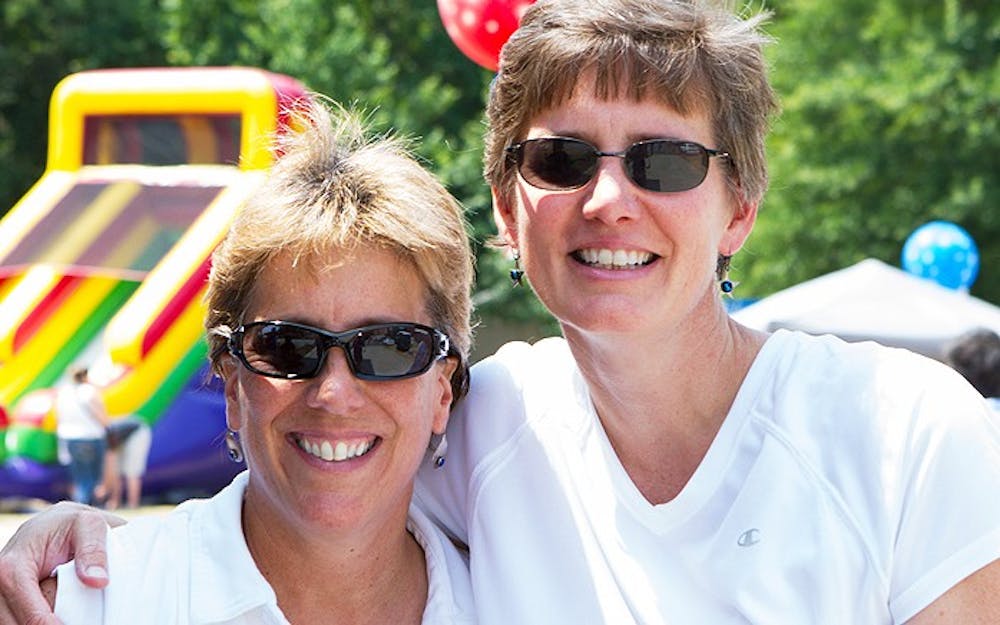In a nod to the 100th anniversary of the town that brought them together, Lydia Lavelle and Alicia Stemper registered as domestic partners in Carrboro in March 2011.
A month later, the bill that would eventually become North Carolina’s Amendment One was filed.
Today, the amendment is law and constitutionally bans gay marriage and domestic partnerships in the state —thus nullifying Lavelle and Stemper’s domestic partnership.
But as the Supreme Court debates the validity of such bans on same-sex marriage, local LGBT activists are focused on the future.
“I’m very, very cautiously hopeful, but I would not be surprised to not have it happen,” Lavelle said. “But I wouldn’t be surprised if you see at least a few of the justices say ‘This is a matter of constitutional magnitude that is really not fair to same-sex couples.’”
Brett Webb-Mitchell, a Chapel Hill resident and former Presbyterian pastor, closely watched the arguments last week with his partner. While he also doubts the court’s decision will bring same-sex marriage to N.C., he is optimistic about the momentum.
“What it does though from a court of public opinion is show us how out of step we are with the nation,” he said. “We may be the last state that amends its constitution prohibiting marriage equality.”
The Defense of Marriage Act, which bans gay marriage at the federal level, and California’s Proposition 8, a 2008 initiative to ban gay marriage in that state, are being contested in the U.S. Supreme Court.
Though many view the imminent decisions as watershed moments for the LGBT rights movement, overturning either policy would not necessarily extend same-sex marriage to all 50 states.



